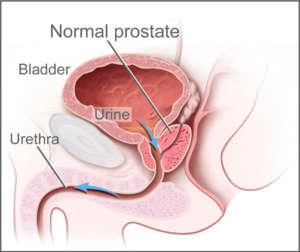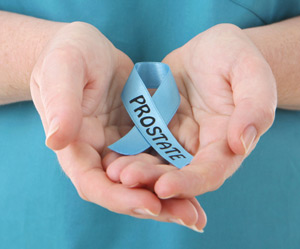 The American Cancer Society expects that nearly 30,000 men will die from prostate cancer in 2015. With so many fatalities and nearly a quarter million new cases expected to get diagnosed in the same year, the new trend against screening is baffling. While screening for prostate cancer has been a point of debate since its inception, the effectiveness of it cannot be questioned. The harm it causes, however, might be enough to dissuade millions of men from undergoing the potentially life saving procedure against the most common non skin-related cancer for men.
The American Cancer Society expects that nearly 30,000 men will die from prostate cancer in 2015. With so many fatalities and nearly a quarter million new cases expected to get diagnosed in the same year, the new trend against screening is baffling. While screening for prostate cancer has been a point of debate since its inception, the effectiveness of it cannot be questioned. The harm it causes, however, might be enough to dissuade millions of men from undergoing the potentially life saving procedure against the most common non skin-related cancer for men.
 Standard screening for prostate cancer is simple. The PSA test, or Prostate Specific Antigen test, is a simple blood test. In conjunction with this test, patients usually also have to go through a digital rectal exam where their physician inserts a finger in the rectum to press on the prostate, looking for lumps or other abnormalities. While neither test can actually predict or definitively diagnose prostate cancer, the information generated by both can tell doctors whether they should conduct a biopsy or not.
Standard screening for prostate cancer is simple. The PSA test, or Prostate Specific Antigen test, is a simple blood test. In conjunction with this test, patients usually also have to go through a digital rectal exam where their physician inserts a finger in the rectum to press on the prostate, looking for lumps or other abnormalities. While neither test can actually predict or definitively diagnose prostate cancer, the information generated by both can tell doctors whether they should conduct a biopsy or not.
It’s easy to see why men would avoid the test. Men are notorious for not being proactive in their health but when a procedure is invasive, embarrassing and uncomfortable, there’s little surprise in their unwillingness to participate. When the US Preventive Services Task Force (Uspstf) recommended against regular prostate tests, record numbers of men opted out of the procedure. The result was surprising.
With less men getting screened, the obvious fear was that more men would succumb to cancer that wasn’t caught in time for surgery and treatment. However, prostate cancer incidences dropped 12% right after the Uspstif delivered their news against screening. That number swelled to 28% decline in prostate cancer diagnosis by the year after the news hit the medical community.
 How could this be? Prostate cancer is one of the slowest growing cancers. As a result, screening finds tumors that may never affect the patient. The natural reaction is to remove any tumor regardless of severity, or even cancer incidence. But what the Uspstf was hoping for with their advice was to eliminate unnecessary tumor removal. This allows men to undergo less invasive procedures that may be needless but also gives them the luxury of not having to go through radiation or chemotherapy and all of the terrible side effects therein like impotence and incontinence.
How could this be? Prostate cancer is one of the slowest growing cancers. As a result, screening finds tumors that may never affect the patient. The natural reaction is to remove any tumor regardless of severity, or even cancer incidence. But what the Uspstf was hoping for with their advice was to eliminate unnecessary tumor removal. This allows men to undergo less invasive procedures that may be needless but also gives them the luxury of not having to go through radiation or chemotherapy and all of the terrible side effects therein like impotence and incontinence.
But a harmful message does this potentially come from this research. If men are told that screening is not effective or possibly even leads to unnecessary surgeries and treatment, it could create more reasons for men to skip visiting their doctors and seek medical attention. While many cancer researchers admit that more men die with cancer than as a result from it, that cannot be a license for men to forego treatment, consultation and diagnosis.
According to research published by Dr. Matt Rosenburg in the International Journal of Clinical Practice, “The primary care provider is on the front line with regards to early detection of prostate cancer. In fact, they are responsible for 90% of the labs drawn in screening.” This could be the reason that the Uspstf found the need to look at how effective the screening process was in the first place. Rosenberg concluded that: “Getting rid of the evaluation for prostate cancer altogether is a bad idea, but intelligently using the tools we have is certainly within the best interest of our patients.”
With all this information, it can be difficult for men to decide what options are best for them. Ultimately, all men need to realize that they need to be proactive with their health and have regular check ups, but they should not follow any diagnosis blindly. Talk with your doctor. Do more to understand everything they say and seek out second opinions. Empower yourself with more knowledge on your health and make decisions on as much information and qualified opinions as possible.
Click here to find out about Rose’s thoughts on wellbeing and health


